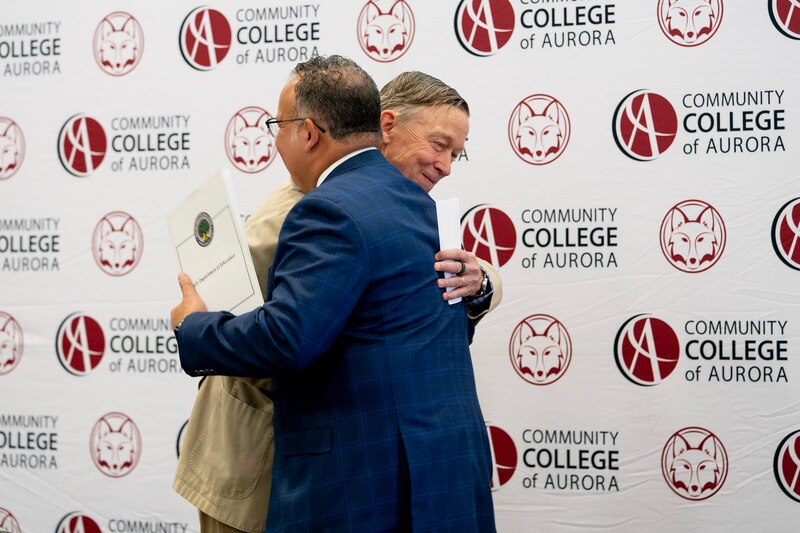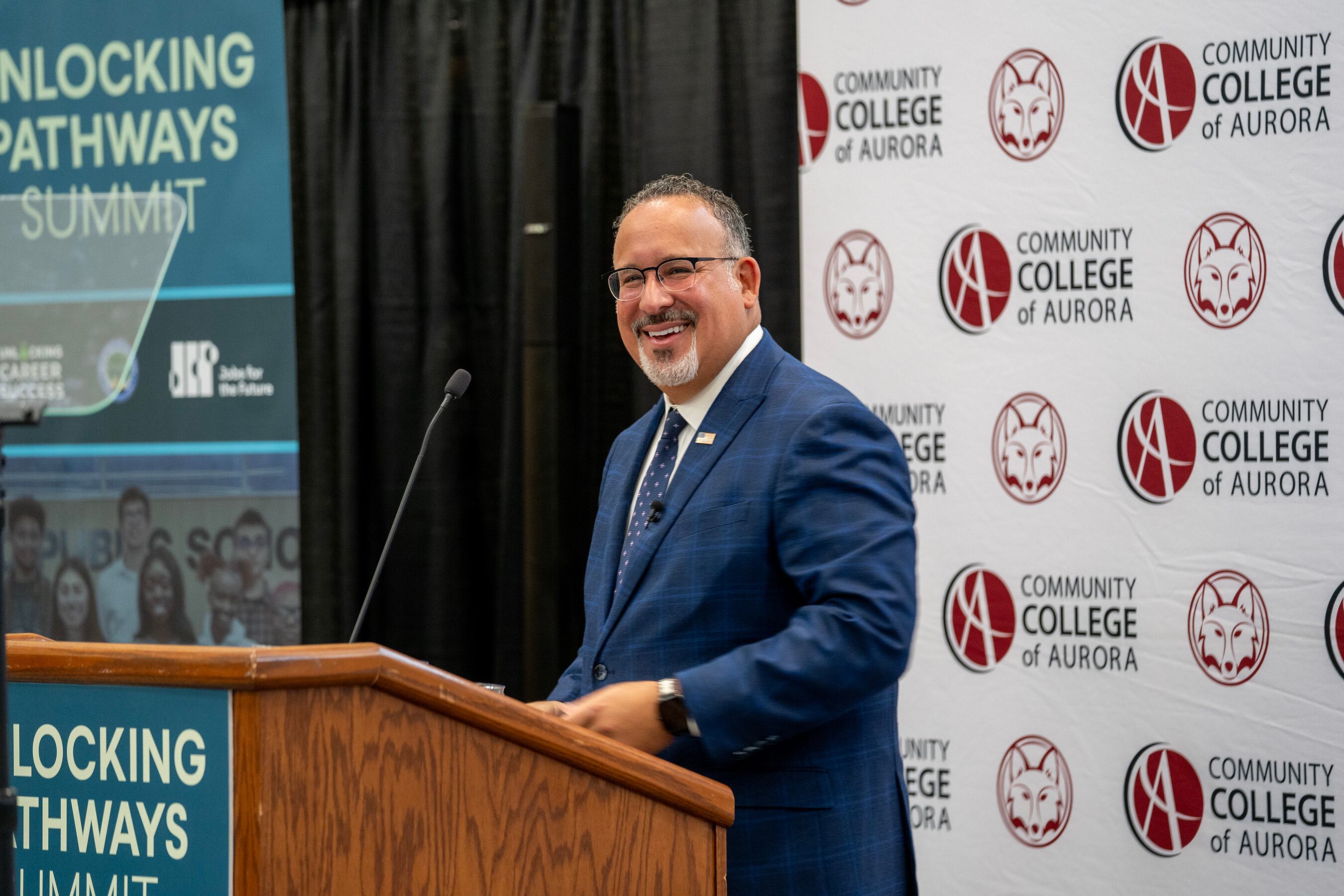Every high school graduate across the country should get the training they need to land a job that leads to more opportunity, U.S. Education Secretary Miguel Cardona said Thursday in a speech at the Community College of Aurora.
To help, Cardona announced the launch of a $25 million federal grant program to support efforts to teach students skills that will help them find a career.
The Career Connected High School Grant program will provide money to school districts, colleges and universities, and employers to pilot strategies that blur the lines between the last two years of high school and the start of postsecondary education. The grants could be used to expand dual enrollment programs, invest in new equipment, or pay for students’ exams that earn them a credential, he said.
“It’s all about accelerating the evolution of our high schools,” said Cardona, who visited the Aurora campus as part of an education summit that drew educators from around the country. “It’s about unlocking career success for our students.”
The grants could bolster the work Colorado is already doing to link high school, higher education, and industry.
But more will be needed to help sustain and accelerate that work, said Mordecai Brownlee, president of the Community College of Aurora. Brownlee, who praised Cardona and the state for the focus on helping students find a path to a job, said the students he serves, mostly low-income Black and Hispanic people, also need money for short-term training and certificate programs — the equivalent of a semester or less of college but enough to get the training for better-paying jobs. And they need more information about what job opportunities are available to them, he said.
Without the financial support, “they’re having to come out of pocket, they’re having to find the scholarship, or they have to find somebody to pay for it,” Brownlee said.
One solution is to help students pay for shorter stints in college by expanding Pell grants, the federal grants for low-income students, he said. The change would especially help older adults who might not have gotten the opportunities the state has recently expanded in high school.
Despite the challenges, Brownlee said students at his community college are benefiting from the focus on career preparation. Last year the state created the Care Forward program, which has helped train more students in health care fields, he said. The program covers the cost of training, books, and fees for students who want to prepare for jobs in fields such as nursing or phlebotomy.
Brownlee is also excited about the expansion of the program, which will allow for two years of free training in professions such as law enforcement, firefighting, teaching, and forestry.
“It’s closed the gap for students,” Brownlee said. “And it’s helped us to meet our charge and our need, which is to ensure social and economic mobility for our students.”
Thursday’s conversation on career training was part of the Biden-Harris administration’s Unlocking Pathways Summit series. The event was co-hosted by Jobs for The Future, a nonprofit that advocates for eliminating barriers to economic advancement.

Cardona highlighted the administration’s work, including on infrastructure and in technology research. He also praised Colorado Gov. Jared Polis for his focus on giving more students career-learning opportunities.
Polis said many students in the state now leave high school with college exposure and credit. And his administration has advocated for making a pathway to a job more seamless, including by giving high school students a head start on postsecondary education. That means students might take college courses while still in high school, or participate in apprenticeships.
The goal is to get industry, high school, and college leaders working together to make it easier for students to get the education they want.
Jason Gonzales is a reporter covering higher education and the Colorado legislature. Chalkbeat Colorado partners with Open Campus on higher education coverage. Contact Jason at jgonzales@chalkbeat.org.





